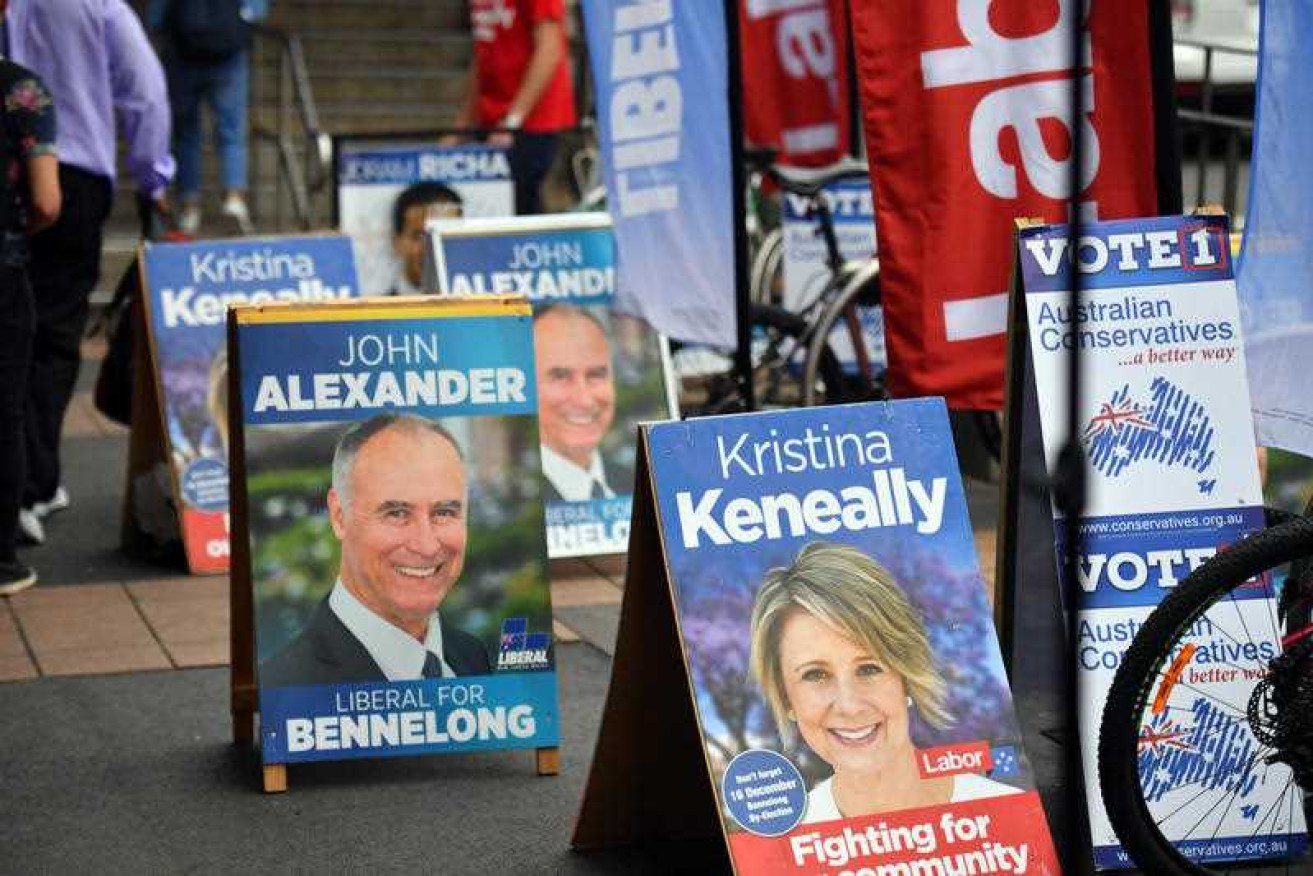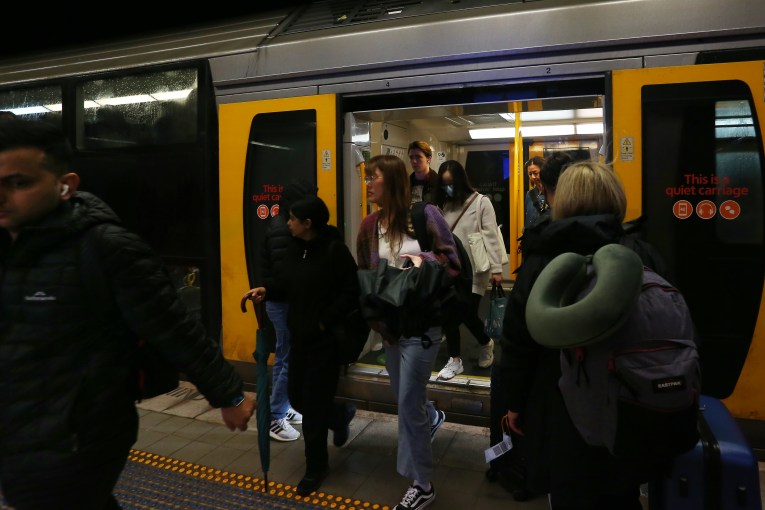The Bennelong byelection poses huge threat to Malcolm Turnbull


The Liberal Party’s response this week was to stress the byelection could still go either way. Photo: AAP
Given that politics – at its core – is about the behaviour of people, it’s no surprise Australian politics involves a number of traditions.
The Bennelong byelection follows those traditions, but is different in one very important way because it could spell the end of either Malcolm Turnbull or even his government.
An obvious tradition is that voters tend to treat byelections as an opportunity to show their dissatisfaction with an unpopular government.
The size of a byelection swing can be large if voters have had enough and want to signal that they aim to change the government at the next federal election.
But the swing can also be large if unhappy voters still prefer the existing government over the alternative. If these voters are confident they can smack the government without throwing it out, then a large number may choose to lodge a wake-up or “protest” vote.
This explains another byelection tradition, where the major parties both claim to be the underdog (even when they’re not) or the election outcome is close (even when it’s not).
In the Bennelong campaign we’ve just witnessed, Labor hoped to maximise the “protest” vote by urging the electorate to “send Malcolm Turnbull a message”.
The Liberal Party’s response was to stress the outcome could still go either way. One opinion poll suggested the electorate was 50:50, while others found voters were more likely to split 53:47 in the Liberal Party’s favour once preferences had been allocated.
But of course, the Bennelong ballot is not your run-of-the-mill byelection. If Labor’s Kristina Keneally manages to replace Liberal John Alexander in the seat, Mr Turnbull’s administration will be down to 74 seats (not counting Speaker Tony Smith) and thrown into minority government status.
One way to solve this, as Julia Gillard did, is to appoint an independent Speaker. However, country independent Cathy McGowan has already rejected any suggestion she might be interested in making the move.
Andrew Wilkie’s response is likely to be the same. And let’s not even think about Bob Katter in the role.
So if the minority Turnbull government lost a vote of no confidence on the floor of Parliament, and Bill Shorten proved to the Governor-General he could form a government with the Greens and the crossbench without resorting to an election, then we could easily end up in early 2018 with a Shorten Labor government.
That’s why we had the highly unusual admission by Mr Turnbull this week that a vote for Ms Keneally could throw him out of a job as well as John Alexander.
“There is a very high cost in voting Labor in Bennelong, because if Labor were to win in Bennelong, then Bill Shorten would be very close to becoming prime minister,” the PM warned.

Sky News pundits are claiming a swing against Mr Alexander of 5 to 7 per cent or more should spell the end of Mr Turnbull’s leadership. Photo: AAP
Mr Turnbull’s declaration is a huge and high-risk bet that the voters of Bennelong might be unhappy, but they don’t want a Shorten Labor government.
If he’s proven to be wrong and Ms Keneally is victorious on Saturday night, then Malcolm Turnbull will have inflicted himself a fatal blow.
There will be no avoiding the reality that the PM made it clear to the voters of Bennelong that he and Mr Alexander were a job lot – if one goes then it will be impossible to argue the other should not go too.
Of course, the supporters of Tony Abbott are not leaving anything to chance and are already framing a Liberal win in Bennelong as a loss for Mr Turnbull. Commentators on Sky News, in particular, are claiming a swing against Mr Alexander of 5 to 7 per cent or more should spell the end of Mr Turnbull’s leadership.
Coincidentally, the usual protest swing in a byelection is around 7 per cent.
The Abbott camp’s argument is that if a swing of this magnitude were to be repeated uniformly around Australia in a federal election, the Coalition would be all but obliterated. And they say this with a straight face, despite knowing it’s junk political science to even suggest the behaviour of voters in one electorate this week is a useful predictor of voter behaviour in six, 12 or 18 months’ time.
Other than Malcolm Turnbull’s potentially fatal admission during the Bennelong campaign, it seems that telling the truth is a tradition no longer observed in Australian politics.








